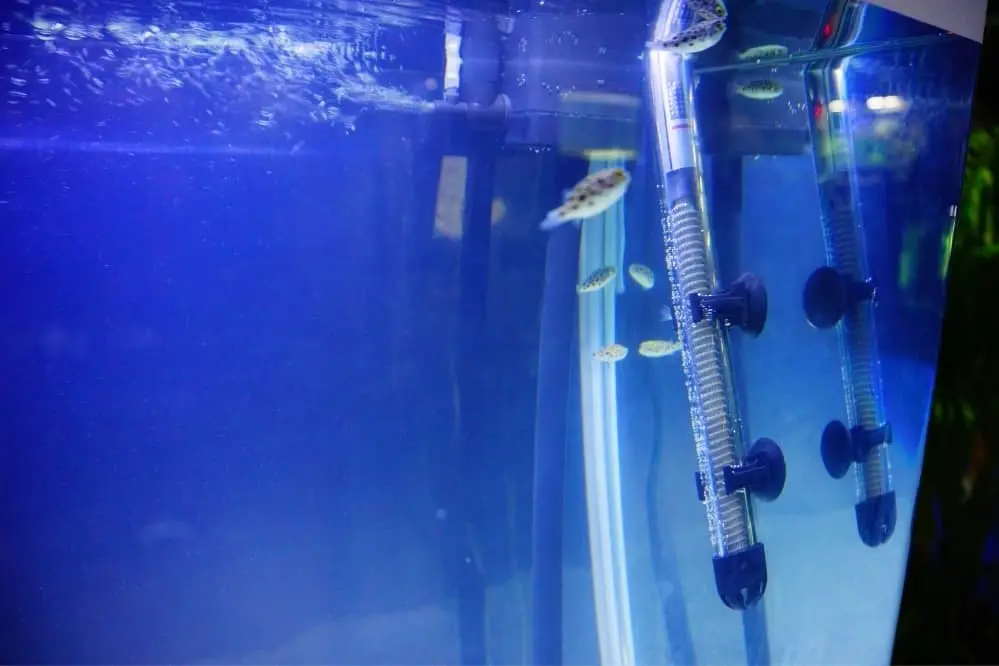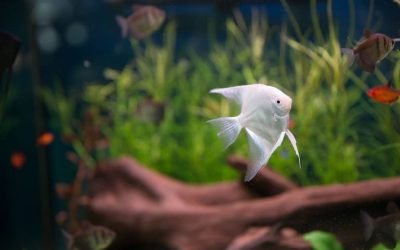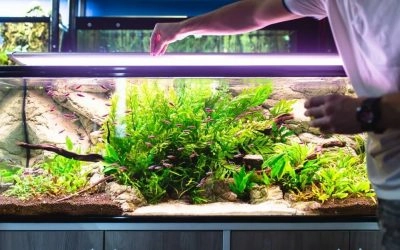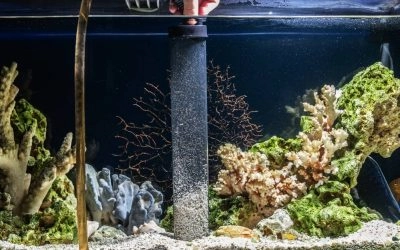Do You Need a Heater For a Fish Tank?

People cite heater to be an optional fish tank equipment based on room temperature and fish species but we say you need heater for your fish tank. If you are going to keep tropical fish then installing an aquarium heater is mandatory. You need heater for two important functions:
- to maintain appropriate water temperature range
- to keep water temperature uniform during day and night
You may not need heater if
- you have heating system in your home or home appliances like space heater that keeps room at constant temperature but leaving heating system or space heater on when you are away from home can be impractical.
- you are keeping species of fish that don’t require aquarium heater. More on this latter.
Now let’s discuss why you need heater in more detail.
Target Water Temperature
If you have aquarium in a living room with room temperature of 75-degree Fahrenheit, your aquarium water temperature will be around that temperature as well. It can be more if you have filter, lighting and pump fitted in your aquarium. 10-12 hours of light shining down on aquarium can warm the water a little bit. Usage of filter and aquarium pump also generates heat that can raise the temperature of water by few degree.
For many tropical freshwater fish, appropriate water temperature is 78 – 80 degrees Fahrenheit. Temperature below 74 degree Fahrenheit can be fatal for tropical fish.
When room temperature cools off, temperate of aquarium water will also drop. For example if room temperature at night drops to 68 degree Fahrenheit, temperature of aquarium water will also dip accordingly. Such temperature drop stresses fish. For fish health, the temperature of water should remain at appropriate degree even when the room temperature drops. To sustain the target temperature, you need heater.
Stable Water Temperature Range
Key to healthy aquarium ecosystem is balance water chemistry and stable water temperature range.
Why do we need aquarium water temperature to be stableIn when in nature, water temperature is not constant?
In outside environment, depending on time of the day and weather, temperature of water fluctuates but fish don’t experience rapid temperature swings due to vastness of ocean and river. Change in temperature is slow and gradual so fish have ample time to adapt. Fish, in their natural habitat, can freely swim away if the temperature of water became unfavorable.
In confined environment of fish tank, temperature change is neither gradual nor can fish swim to desirable spot when temperature becomes unfavorable. Rapid fluctuation or drastic fluctuation in water temperature distresses fish and other aquatic life in your tank. It can cause temperature shock.
In wild, fish exist within certain temperature range. Some hardy tropical fish like cichlid and livebearers can tolerate few degree of temperature beyond their optimum temperature range but long term exposure to wrong temperature range can shorten lifespan along with other negative impact on fish health.
Heater is a simple and effective way of mimicking temperate climate in fish tank. Invest in separate thermometer as well for precise temperature reading to maintain optimum temperature range for your fish. It is vital for their survival.
Why maintaining water temperature range is important?
Fish is poikilothermic (cold-blooded) vertebrate. They use their surrounding temperature to regulate their body temperature. They solely rely on external heat source to maintain metabolically favorable temperature. When the water temperature is too cold, fish metabolism slows down. They become lethargic. Their immune system gets compromised and won’t be able to fend off infections and diseases such as ich (white spot disease).
Contrastingly, in warm temperature, metabolism of fish speeds up. Fish are more active and livelier, consuming more oxygen. However, warm water holds less oxygen than cold water so when water gets warmer you need to increase the aeration of water. Lack of dissolved oxygen is a major stressor for fish. In extreme cases, fish can die of internal organ failure and suffocation.
Can you leave heater on all the time?
Heater can be left on all the time. Once it reaches the temperature of the setting, thermostat inside aquarium heater will turn off the heat eliminating the danger of overheating. When the temperature falls below the set temperature, it will starting heating automatically.
Can you use more than one heater?
There are some advantage to using more than one heater. When you use two heaters simultaneously, it can minimize the danger of temperature swing if one of the heater malfunctioned. Using two lower wattage heaters (instead of one large wattage heater) also improves efficiency and energy consumption.
In long tank, placing one heater on one side and placing another heater on the opposite side can ensure uniform water temperature over all area of fish tank.
Do all pet fish need heater?
Coldwater fish like goldfish, danio, white cloud minnows, barb and livebearer can be kept in fish tank without heater. They are perfectly fine at room temperature in a unheated aquarium. However, consider getting a heater if your room temperature fluctuates too much or if there is unexpected cold spell.




0 Comments